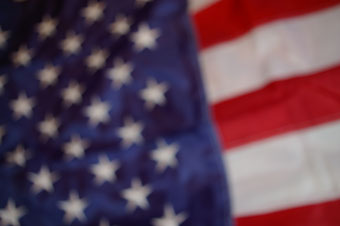
Photo by Thursday Review staff
How an Assassination Changed the
American Conversation
| published June 9, 2016 |
By Craig R. Seaton, Thursday Review contributor
“NATION MOURNS SLAIN PRESIDENT” read the morning headline on November 23, 1963—not quite 18 hours after John F. Kennedy was senselessly gunned down in Dallas. Other headlines across the nation rang out similar expressions of grief mixed with unbelief for an event that, in many ways, defined and shaped the rest of the 1960s in America.
When the polls open this November, almost 53 years will have passed since this leader of the Free World was assassinated. Nine U.S. Presidents have come and gone since that fateful day and, with a few exceptions, the Office of the President of the United States has suffered a steady decline—both in its quality of leadership, and the respect of the Office from the American people.
There was a time in our nation when this position was revered by most citizens. We looked to our national leader, not only for good, solid judgment as he served the country, but in much the same way subjects historically honored their kings and queens—with a combination of trust and adoration.
A recent documentary about the Kennedy Assassination reminded me of the heartfelt grief and plausible mourning that accompanied President Kennedy’s death. Millions of Americans cried and wailed and sincerely lamented this great man who was violently taken from us. I’ve often wondered what our national reaction would be if, God forbid, something like that happened today.
William Gladstone said that the way a nation honors its dead reflects its ideals. This rings true in any level of society—including how we’re affected when someone in our own family or community dies.
I firmly believe something happened in our national mindset when Kennedy was shot. The subsequent results of the Warren Commission sparked a mistrust in our government which, to this day, grows like a malignant cancer. And just like cancer, this mistrust will not cure itself—it must be excised if the patient expects to survive.
Society reflects the mindset of the individuals who comprise it in the same way art reflects life and vice versa. You needn’t venture too far from your own back yard to see this. There exists not only rampant mistrust of government, but a sour shallowing of interpersonal relationships in general—whether governmental, vocational, religious or familial.
My wife and I staff a booth at the Clay County Fair every year. Besides being a great place to eat a corn dog, have some fun, and do some good old-fashioned people-watching, the county fair is also an interesting study in human interactions and attitudes. This year more than others, I was intrigued to notice something I’d missed before: T-shirts.
What do shirts have to do with President Kennedy’s assassination? Glad you asked.
I think what we say on our T-shirts, our vehicles’ bumpers and back windows and our intrepid social media posts, says a lot about our attitudes and outlooks on life. Yes, some are funny and most must be taken with a grain of salt, but still, every expression contains a remnant of personal conviction.
A few shirts and stickers: “Sarcasm is my Second Language”; “In Memory of When I Used to Care”; “Keep Honking, I’m Reloading” - and lots of others I won’t validate by mentioning (hmm, now there’s a notable notion—not saying something for public view even though you have the “freedom” to do so…)
Would you really shoot me for simply honking my horn? Have we sarcastically stopped caring for each other?
If so, I hope and pray we all wake up before it’s too late. The woods are lovely, dark and deep—but [we] have promises to keep, and miles to go before [we] sleep.
Related Thursday Review articles:
The JFK Assassination and the Search for Truth; Kevin Robbie; Thursday Review; November 21, 2013.
The Thoughtful Readers Primer to the JFK Assassination; R. Alan Clanton; Thursday Review; November 23, 2013.
